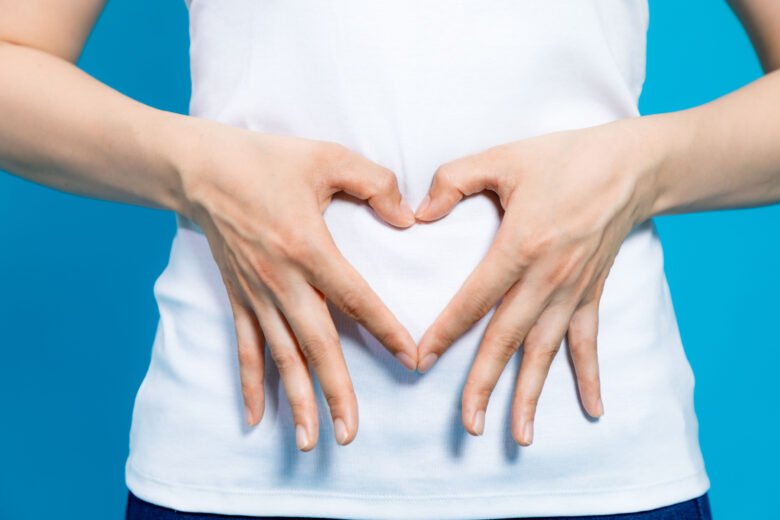If you’ve been tracking your calories, moving daily, managing your macros, and even improving your sleep and stress—but the scale still isn’t budging—your gut health and hormones may be silently sabotaging your efforts.
These hidden influencers play a massive role in metabolism, appetite regulation, nutrient absorption, inflammation, and fat storage. When they’re out of balance, weight loss becomes a frustrating uphill battle, no matter how disciplined your routine is.
In this article, you’ll discover how your gut and hormonal systems affect fat loss, the tell-tale signs of imbalances, and a step-by-step plan to restore balance naturally and start making progress again. This is a key piece of the larger picture outlined in How to Overcome a Weight Loss Stall Naturally.
Section 1: Understanding the Gut–Hormone Connection
1.1 Gut Health and Weight Loss
Your gut is more than a digestion center. It’s home to trillions of microbes that influence:
- How efficiently you digest and absorb nutrients
- Hormones that regulate hunger and fullness (like GLP-1, PYY, and ghrelin)
- Inflammation, which can interfere with fat metabolism
- Mental health and stress (through the gut-brain axis)
When your gut microbiome is imbalanced (dysbiosis), it can lead to:
- Bloating
- Constipation or diarrhea
- Cravings for sugar and refined carbs
- Reduced metabolic efficiency
1.2 Hormones That Influence Weight Loss
Several hormones play key roles in fat loss:
- Insulin: Controls blood sugar and fat storage
- Cortisol: The stress hormone—too much = belly fat
- Thyroid hormones (T3, T4): Regulate metabolism
- Estrogen/testosterone: Affect fat distribution and muscle mass
- Leptin & Ghrelin: Regulate hunger and fullness
Hormonal imbalances may develop from poor sleep, chronic stress, yo-yo dieting, overtraining, or inflammation—see how these elements intertwine in Why Your Sleep and Stress Levels May Be Sabotaging Your Weight Loss.
Section 2: Signs You Might Have Gut or Hormonal Imbalances
You might suspect gut or hormone dysfunction if you experience:
- Fatigue despite sleeping enough
- Frequent bloating or digestive issues
- Strong sugar or carb cravings
- Mood swings, anxiety, or depression
- Irregular periods or libido changes
- Weight gain around the belly
- Slow or stagnant fat loss despite consistent habits
These are red flags your metabolism isn’t functioning efficiently—especially if you’re already applying strategies from How to Move More Naturally and The Role of Macros in Weight Loss.
Section 3: Step-by-Step Plan to Restore Gut and Hormonal Health
Step 1: Clean Up Your Diet Naturally
- Cut ultra-processed foods: These feed harmful gut bacteria and spike insulin. Limit refined sugars, industrial seed oils, and additives.
- Eat whole, fiber-rich foods: Beans, oats, chia seeds, leafy greens, and sweet potatoes feed your beneficial microbes.
- Prioritize fermented foods: Add yogurt, kefir, kimchi, sauerkraut, and kombucha daily to improve microbiome diversity.
- Stay hydrated: Aim for 2–3 liters of water daily to aid digestion and reduce bloating.
🡆 For a calorie-conscious approach without under-eating, refer to How to Naturally Adjust Your Calorie Intake Without Starving.
Step 2: Balance Blood Sugar and Insulin
Insulin resistance is a major stall factor. You can improve insulin sensitivity with:
- Protein-rich breakfasts: Eggs, Greek yogurt, or a protein smoothie
- Stable carb intake: Choose slow-digesting carbs like quinoa, oats, and legumes
- Pair carbs with fat or protein: This slows absorption and stabilizes energy
- Daily movement: Even light walking after meals improves blood sugar levels—see NEAT strategies in this guide
Step 3: Support Healthy Bowel Movements
Regular elimination helps detox excess estrogen, harmful bacteria, and inflammation:
- Get at least 25–35g of fiber daily
- Include magnesium-rich foods (pumpkin seeds, leafy greens)
- Move your body daily to stimulate digestion
- Try herbal teas like peppermint or dandelion root for natural relief
Constipation and sluggish digestion increase toxicity and reduce nutrient absorption—two things that stall fat loss.
Step 4: Address Hormonal Stressors
Chronic cortisol elevation can impair thyroid function, increase insulin resistance, and disrupt estrogen balance.
- Sleep 7–9 hours consistently: Lack of sleep spikes cortisol and insulin.
- Practice calming routines: Deep breathing, meditation, nature walks.
- Avoid over-exercising: High cortisol from overtraining backfires. Mix moderate cardio with strength training and lots of NEAT.
- Include healthy fats: Avocados, olive oil, nuts, seeds, and fatty fish support hormone production.
🡆 Explore more stress-focused techniques in Why Your Sleep and Stress Levels May Be Sabotaging Your Weight Loss
Step 5: Check for Nutrient Deficiencies
Gut issues often lead to poor absorption of key nutrients like:
- B12 and iron: Energy and thyroid health
- Magnesium: Stress management and bowel regulation
- Zinc and vitamin D: Immune function and hormonal balance
Consider testing or carefully supplementing under professional guidance.
Step 6: Consider Gut-Specific Supplements (With Caution)
If diet changes aren’t enough, you might try:
- Probiotics (Lactobacillus and Bifidobacterium strains): May support microbiome diversity
- Prebiotics (inulin, chicory root): Feed beneficial bacteria
- Digestive enzymes: Aid nutrient absorption if digestion feels sluggish
- L-glutamine: Helps repair the gut lining if leaky gut is suspected
Always consult a healthcare provider before starting supplements.
Section 4: Tying It All Together
Restoring your gut and hormone health takes time, but results are well worth it. As they begin to rebalance, you’ll notice:
- Easier weight loss
- More stable energy
- Reduced cravings
- Better mood and sleep
- Less bloating and digestive discomfort
Conclusion
Weight loss plateaus are frustrating—but often not your fault. If you’re doing everything right and still stuck, it’s time to look beneath the surface. Gut health and hormone balance are the “silent regulators” of your metabolism, appetite, cravings, and energy.
By improving your diet quality, managing stress, supporting digestion, and addressing deficiencies, you can restore balance from the inside out—and finally see the results you’ve been working for.
This isn’t just about losing weight. It’s about helping your body thrive again—naturally.



